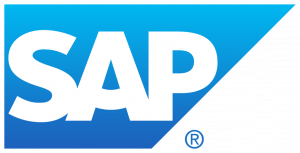The future of government work entails more than employees adapting to new technologies or mapping career paths.
It requires agencies to look at three dimensions of how government work is changing: 1) What type of work is needed and how it’s performed; 2) how the workforce will evolve to perform this work, and who will do the work; 3) how agencies define the workplace and its location, whether in a shared office, at employees’ homes or a combination of places.
So what’s driving agencies to rethink these critical areas of change?
Market dynamics, changing citizens’ expectations, and technology advances. For example, “the loss of talent to retirement is inevitable,” said Enio Velazco, Ph.D., Vice President of Human Resource Strategy and Business Transformation SAP, an enterprise software firm. “Agencies need to prepare for new employees with different expectations who are coming into the workforce, all while ensuring that the mission continues. And, really, agencies need to consider the skills and capabilities that will be needed in the future.”
Velazco shared three ways that agencies can prepare for the evolution of government work.
1. Develop a culture of learning
As employees adapt to new technologies and ways of working, those who have a curiosity to learn will be better suited to make the transition. “There will be a need for people to continue learning,” Velazco said. “When agencies are interviewing potential new hires, they need to identify who’s curious and who has an appetite for learning.”
Creating a culture of learning better positions employees to keep pace with changing demands and expectations both internally and externally from the public. For example, data literacy is a coveted workforce skill that should be prioritized across roles, especially as agencies seek to make data-driven decisions.
2. Elevate emotional intelligence
Velazco stressed the importance of emotional intelligence in the workplace, or the ability to express and understand your emotions, as well as understand someone else’s. How agencies identify and elevate this skill will vary, but one constant is that emotional intelligence directly influences how employees relate to each other and the people they serve.
Cross-cultural competence, or the ability to understand and effectively engage with people from different cultures, is also a valued skill that agencies must develop now, and in the future, to effectively serve a diverse public.
3. Embrace modern hiring practices
Hiring should evolve as your organization evolves, Velazco said. “What we call best practices today need to be open for improvement in the future, especially as technology evolves.”
This mindset guides the approach that SAP takes when developing workforce solutions, including those that address unconscious bias and enable organizations to attract and assess job applicants. The company has also teamed up with partners to develop solutions that can predict career progression success, Velazco said.
Adapting to the future of work requires a mindset shift. Agencies that prioritize a culture of continuous learning, emotional intelligence and modern hiring practices are in the best position to adapt and excel.
This article is an excerpt from GovLoop’s recent report, “Modern Hiring: How Agencies Are Preparing for the Next Generation of Work.” Download the full report here.






Leave a Reply
You must be logged in to post a comment.